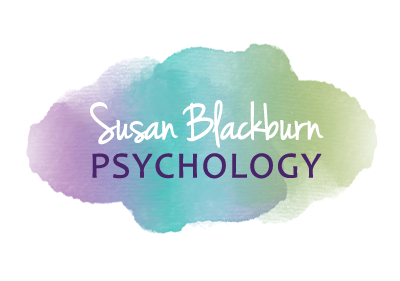Are you someone that likes taking care of other people?
If you do, some of your greatest strengths, generosity, selflessness and empathy for others are just one reason why people love having you around personally and professionally.
On the flip side, you might find it really challenging to make yourself a priority and give to yourself with kindness, compassion and self love. It may be hard for you to set boundaries with others and recognize when you’re stretched too thin.
Maybe you have trouble saying “No”?
To remain in good health mentally and physically and avoid burnout, it’s essential that you put yourself first and start to take better care of yourself. This isn’t selfish. It’s actually the most important thing you can do for everyone in your life so that they get the best of you.
What is Burnout?
Burnout isn’t technically a mental health term, but it’s every bit as serious. You are experiencing burnout when you are no longer able to cope with your professional or personal responsibilities due to a chronic state of fatigue, stress and exhaustion. There is frequently a relationship between burnout and depression.
In some cases, you may become depressed as a result of burnout and in other cases, you actually are depressed but feel more comfortable considering yourself as being ‘burnt out’ due to personal and social stigma.
People experiencing burnout at work are often told to take a stress leave so that they can recover. It’s almost always the case that by the time your family doctor or therapist recommends that you take a stress, that you have already crossed the line from burnout into depression.
If you are unable to cope at work because you struggle with being emotionally distressed, can’t wake up on time, are unable to focus, have a lot of anxiety and/or experience panic attacks please take this seriously and don’t push yourself to ‘be strong‘. For a day or two, pushing yourself to perform is normal and likely necessary.
But beyond that, it is not a strength too push yourself when you are suffering. Unless you do something concrete about it, such as seeing your doctor and/or a therapist or start exercising daily, don’t assume it will just get better.
Types of People Likely to Experience Burnout
This message could apply to anyone, but you’re more likely to experience burnout if you identify with any of the following: parent, nurse, therapist, caregiver, doctor, teacher, police officer, lawyer, accountant, fast food employee, retail worker, student, type A personality, or perfectionist among others. If this is you, you may find yourself in a highly demanding role, which will be even more difficult if you don’t have an off switch where you know your limits, can say no when necessary and take your breaks and holidays.
Signs that You’re On the Way to Having Burnout
- Feeling like every day is a bad day;
- Making an effort at work or at home seems like it would take too much energy
- Feeling exhausted all the time
- Spending most of your time on tasks that overwhelm or bore you
- Feeling like you are unappreciated and nothing you do seems to matter
- and if it’s too late for that, recognize the signs that you are experiencing burnout.
Factors that Increase Chances of Burnout
Some people are more resilient to stress than others. People that are known to have a low threshold for stress will feel the pressure from stressors a lot more quickly than people that can handle a lot more. No matter how much stress you can handle, everyone has a limit.
The specific factors that increase your chances of experiencing burnout include:
- Feeling like you don’t have control over the situation you find yourself in;
- Your circumstances are out of alignment with your values;
- It seems like you’re being taken for granted;
- The number of responsibilities and/or the deadlines are unreasonable;
- The situation you find yourself in is unfair; and
- Communication and conflict resolution have become impossible.
How to Recover from Burnout
At times recovering from burnout seems impossible, but know that you will recover in time as long as you don’t give up and you take steps to turn things around.
One of the significant factors in healing from the exhaustion and overwhelm you’ve been experiencing is to strengthen your relationships with family and friends. Having close, supportive relationships is a powerful antidote for symptoms of burnout. If you don’t have anyone to turn to, it’s never too late to widen your social circle and making new friends.
Make sure that you’re getting adequate rest and sleep, exercising regularly, eating healthy, high energy foods, saying no and setting boundaries with others and keeping your commitments to a minimum.
Start being good to yourself by using positive self-talk so that the voice in your head is more of a best friend and less of critic.
Bringing fun and joy into your life goes a long way to bring you back to good health and keep you there.
Have Fun to Eliminate Burnout
Putting yourself first and making time for joy and fun is a selfless act because when you give yourself the love, attention and excitement you need to feel energized, focused and positively engaged with life, everyone around you benefits.
Everyone in your life ends up getting so much more by coming 2nd, 3rd or 4th than when they came first.
You will be happier, smile more easily and will be a joy to be around. The amount of care, time and attention you’ll have for others will actually increase exponentially when you make yourself your number one priority.
Bringing balance into your life by engaging in activities that are fun, relaxing and creative on a regular basis is a big part of staying emotionally, physically and mentally whole.
Being good to yourself takes some effort, but the rewards including feeling joyful, energetic and healthy are well worth it.
When life becomes stressful it can be difficult to remember the things you like to do that keep you balanced and bring you joy.
You might find it helpful to create a list that you can keep handy to remind yourself of fun and creative activities you enjoy doing.
Since everyone is different your list should only include those things that you love to do.
List of 63 Fun Activities
Here are a few ideas to get you started:
- Watch a funny movie
- Go for a walk or run
- Have a bubble bath
- Dance like no one’s watching
- Go to the driving range
- Call a friend that makes you laugh
- Go to a live performance
- Attend a comedy show
- Sing (in the shower or otherwise)
- Do some woodworking
- Play an instrument
- Knit or crochet
- Start your own business doing something you love
- Do some sketching or painting
- Write poetry
- Go swimming
- Bake cupcakes
- Cook a new dish
- Try a new restaurant
- Invite friends over for dinner
- Throw a party with balloons
- Write a song
- Go fishing
- Do a puzzle
- Play a game
- Go for a drive in the country
- People watch in a busy park
- Go kite flying
- Learn astrology or numerology
- Update your wardrobe
- Go ballroom or county dancing
- Do a spin class
- Plant a garden
- Experiment with makeup
- Make a vision board and put it up
- Read a great book
- Enjoy a glass of wine
- Drink a cup of tea
- Buy yourself flowers
- Go bowling
- Spend time at an amusement park
- Take up bird watching
- Become a nature photographer
- Go hiking
- Take a laughter yoga or puppy yoga class
- Challenge yourself with an Escape Room
- Play video games
- Learn axe throwing from the pros
- Make a playlist with your favorite songs from high school
- Go horseback riding
- Go scuba diving
- Ride a bike
- Visit the zoo
- Use the swings at the park
- Go skiing or snowboarding
- Go golfing
- Do some indoor rock climbing
- Plan a vacation
- Make crafts or do some scrapbooking
- Take a class
- Volunteer
- Engage in Random Acts of Kindness
- Smile at everyone you see
What can you do to take better care of yourself and have fun doing it so that you avoid burnout?











